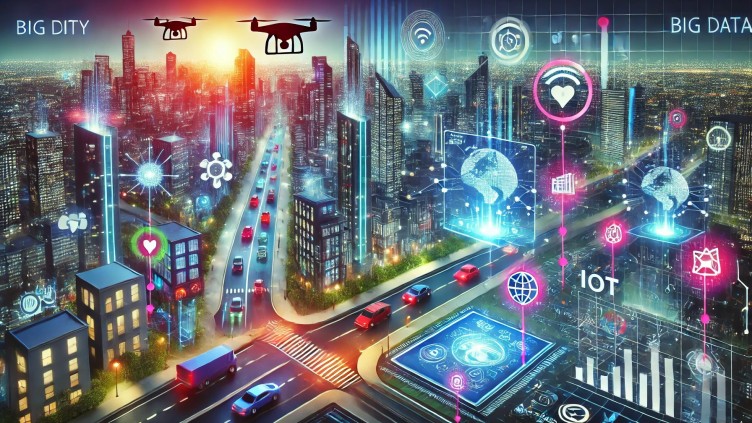The world is moving towards urbanization at an unprecedented pace, with cities growing rapidly in population and complexity. Managing these urban spaces efficiently requires data-driven solutions, and this is where Big Data comes into play. By leveraging vast amounts of real-time information, smart cities are transforming urban life, improving infrastructure, enhancing sustainability, and making cities more livable.
The Role of Big Data in Smart Cities
Big Data provides actionable insights that help governments and city planners make informed decisions. By collecting and analyzing data from sensors, IoT devices, mobile applications, and social media, urban areas can optimize resources, reduce costs, and improve citizen services.

Key Areas Where Big Data is Transforming Urban Planning
Traffic Management & Transportation
- Real-time traffic monitoring using sensors and GPS data helps reduce congestion.
- AI-powered predictive analytics optimize traffic light timings and public transport routes.
- Ride-sharing and smart parking systems improve mobility while reducing carbon footprints.
Energy Efficiency & Sustainability
- Smart grids monitor and adjust electricity distribution based on demand.
- Predictive analytics help reduce energy wastage in buildings and homes.
- Big Data enables the integration of renewable energy sources into city power systems.
Public Safety & Security
- AI-driven surveillance helps detect and prevent crimes.
- Data-driven emergency response systems enhance disaster preparedness.
- Real-time analytics optimize law enforcement deployment and resource allocation.
Waste Management & Pollution Control
- IoT sensors track waste levels and optimize collection routes.
- Air and water quality monitoring systems provide real-time pollution data.
- Predictive models help cities reduce emissions and meet sustainability goals.
Healthcare & Smart Living
- AI-driven analytics predict disease outbreaks and improve healthcare planning.
- Smart sensors in homes monitor air quality, temperature, and energy usage.
- Wearable devices provide real-time health data to improve public well-being.
Challenges & The Future of Big Data in Smart Cities
While Big Data has the potential to revolutionize urban planning, challenges such as data privacy, cybersecurity, and infrastructure costs remain. However, with advancements in AI, machine learning, and IoT, smart cities will continue to evolve, making urban environments more efficient, safe, and sustainable.
Conclusion
Big Data is at the heart of modern urban planning, enabling smarter, greener, and more efficient cities. By integrating data-driven technologies, we can enhance the quality of life, optimize resources, and pave the way for a smarter future.
The future of urban living is data-driven! Are we ready to embrace it?